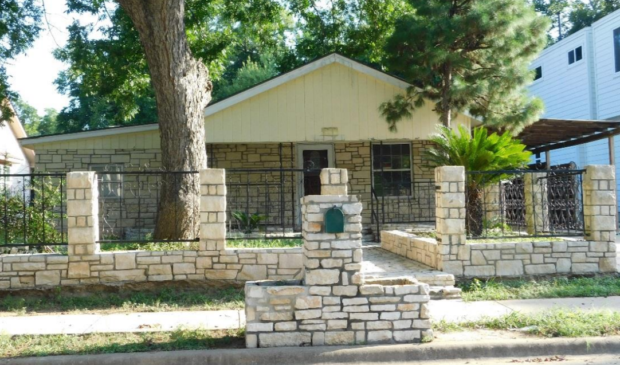Planning Commission recommends Rendon house for historic zoning over owner’s wishes
Thursday, January 16, 2020 by
Jessi Devenyns The Planning Commission took another step Jan. 14 to pave the way for historic zoning for the home of the late Edward Rendon Sr. despite continued opposition from one of Rendon’s 16 heirs.
With a vote in favor of historic zoning, the case for 1705 Haskell St. will go before Council with supermajority recommendations from both the Planning Commission and the Historic Landmark Commission.
“Third time is the charm,” said Bertha Delgado, Rendon’s granddaughter and the president of East Town Lake Citizens Neighborhood Association.
Rendon was a Mexican American activist who helped clean up Festival Beach and reduce the noise pollution that was rampant from the drag boat races of the ’70s. In 2007, the park was renamed Edward Rendon Sr. Park at Festival Beach in his honor.
The case has been hotly contested by Rose Rubio, one of Rendon’s daughters, who is the presumed majority owner of the property and is opposed to the historic designation. A case for the property’s ownership distribution is currently in probate court and there is not a final decision on the percentage each of the 16 heirs owns.
Rubio was absent from the discussion Tuesday night, but was represented by Victoria Haase of Thrower Design, who told commissioners, “What we’re really here to talk about tonight is the significance of the structure, not the significance of a person.”
No one disputed Edward Rendon’s importance to the East Austin community. However, Haase told commissioners that Rendon did not conduct the majority of his advocacy meetings in his home. As evidence of this claim, Haase cited a lack of references to significant events and happenings at the residence from research she had completed at the Austin History Center and in Austin American-Statesman archives.
The case to zone the home historic was built on the home’s historical associations and community value.
Commissioner James Shieh said without “real data” to support evidence of community value, it is difficult to determine the extent of the role the home played in the neighborhood.
Historic Preservation Officer Steve Sadowsky told commissioners the data that determined the home’s qualification under community value were the statements from the community members themselves.
“We had the mayors. We had the governor. Everybody met there,” said Elisa Rendon Montoya, Rendon’s daughter.
Despite support from the community to preserve the structure, there is a risk it will be demolished if historic zoning is not granted. The home currently has a purchasing contract with a buyer, but its finalization is dependent on the city authorizing the demolition of the property. “If they cannot demolish the property, they are going to back out of the buy,” said Delgado.
Courts have mandated that the heirs sell the home, but the family members remain divided over whether the home should be preserved as part of that transaction. In an effort to find a solution, Delgado told commissioners the Guadalupe Neighborhood Development Corporation had agreed to buy the property to preserve the structure and convert it into affordable housing.
However, due to a court case over Rendon Sr.’s will, there are stipulations making the alternate secondary offer out of reach for the family. “Guadalupe Neighborhood Development Corporation did write up a pending contract but the court wanted him to do a cash buyout in 30 days,” Delgado explained.
Multiple layers of court dates, hearings and family disagreements colored the discussion at the Planning Commission. To direct the conversation back to the matter at hand, Commissioner Shieh said, “There’s so much stuff behind this. … We need to look at this how the city spells it out.”
When the commission evaluated the merits of the case based on its fulfillment of community value and historic association, they found by a 9-0-1 vote that the home was worth preserving. Chair Fayez Kazi abstained from the vote and commissioners Awais Azhar, Claire Hempel and Patricia Seeger were absent.
“To actually see where everything happened … that’s more powerful than saying, hey, that (park) is named after him,” said Shieh.
Photo courtesy of the city of Austin.
The Austin Monitor’s work is made possible by donations from the community. Though our reporting covers donors from time to time, we are careful to keep business and editorial efforts separate while maintaining transparency. A complete list of donors is available here, and our code of ethics is explained here.
You're a community leader
And we’re honored you look to us for serious, in-depth news. You know a strong community needs local and dedicated watchdog reporting. We’re here for you and that won’t change. Now will you take the powerful next step and support our nonprofit news organization?









